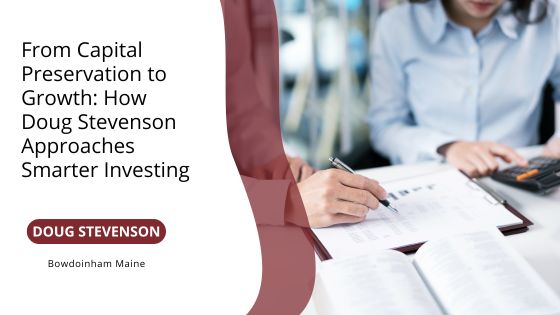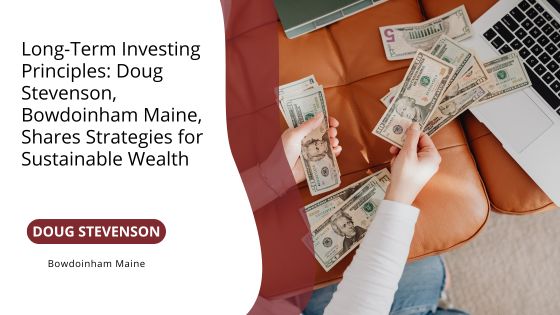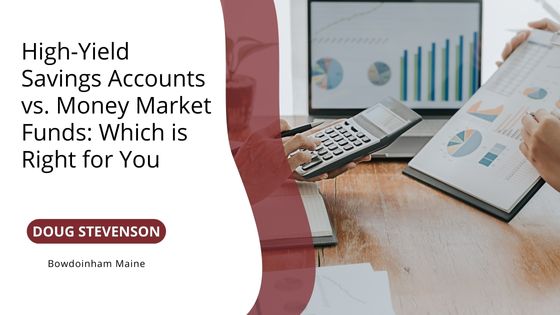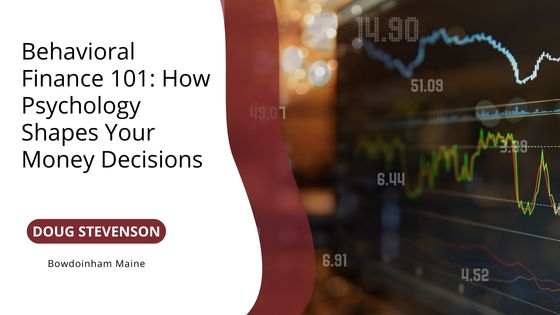Risk, Discipline, and Patience: Doug Stevenson Maine on Smarter Investing Decisions
Risk is an unavoidable part of investing, but how it is managed often determines long-term success. Doug Stevenson of Maine explains that smarter investing begins with understanding risk rather than avoiding it. Every investment carries uncertainty, and acknowledging...
Long-Term Wealth Planning in Changing Markets: Douglas Stevenson of Bowdoinham Maine Explains Key Principles
Financial markets are constantly evolving, influenced by economic cycles, policy changes, and global events. Douglas Stevenson of Bowdoinham Maine emphasizes that long-term wealth planning provides stability in the face of uncertainty. Rather than reacting to...
From Capital Preservation to Growth: How Doug Stevenson Approaches Smarter Investing
Balancing Protection and Opportunity Successful investing requires more than simply seeking high returns. Doug Stevenson emphasizes that smarter investing begins with protecting capital before pursuing growth. Capital preservation creates the foundation that allows...
Risk Management for Long-Term Investors: Douglas Stevenson of Maine Explains What to Prioritize
Why Risk Management Matters More Than Returns Many investors focus heavily on returns while underestimating the importance of risk management. Douglas Stevenson of Maine emphasizes that long-term success is not about chasing the highest gains, but about protecting...
Behavioral Money Habits Every Investor Should Break: Guidance from Douglas Stevenson of Maine
Investing is as much about psychology as it is about numbers. Even the most technically sound financial strategies can be undermined by poor behavioral habits. Douglas Stevenson of Maine emphasizes that recognizing and correcting these patterns is critical for...
Long-Term Investing Principles: Doug Stevenson, Bowdoinham Maine, Shares Strategies for Sustainable Wealth
In a world filled with market noise, daily fluctuations, and endless financial advice, long term investing remains one of the most reliable tools for building sustainable wealth. According to Doug Stevenson of Bowdoinham, Maine, successful investors share one common...
Douglas Stevenson of Bowdoinham, Maine, on Long-Term Wealth Strategies for Modern Investors
In a world where financial markets shift rapidly and new investment trends emerge almost daily, building long-term wealth requires more than just quick thinking — it demands patience, strategy, and perspective. Douglas Stevenson of Bowdoinham, Maine, emphasizes that...
Doug Stevenson, Maine Financial Expert, Explains How Market Psychology Drives Investment Choices
Investing is often viewed as a numbers game, analyzing charts, studying balance sheets, and tracking market trends. Yet according to Doug Stevenson, a Maine-based financial expert, the real driver behind most investment decisions isn’t math or logic. It’s psychology....
High-Yield Savings Accounts vs. Money Market Funds: Which is Right for You
A high-yield savings account is a bank account that offers a higher interest rate than traditional savings accounts. These accounts are typically offered by online banks with lower operating costs, allowing them to pass on the benefit to customers. They provide a safe...
Behavioral Finance 101: How Psychology Shapes Your Money Decisions
Behavioral finance is the study of how psychological influences affect financial decision-making. Traditional finance assumes people are rational actors who make logical choices to maximize wealth. In reality, emotions, biases, and mental shortcuts often drive money...










